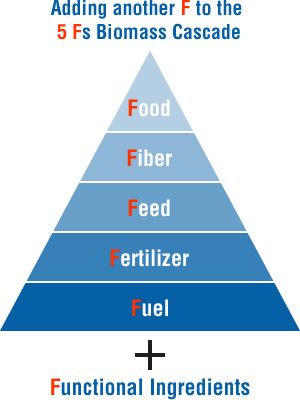Fuels produced using biomass are called bio-fuels. Carbon dioxide released by burning bio-fuels is carbon dioxide, which was absorbed from the atmosphere through photosynthesis. Therefore, substituting biomass for energy and products derived from petroleum can contribute to the reduction of emissions of carbon dioxide, a greenhouses gas that causes global warming. Due to the growing awareness of global warming in recent years, the use of “algal biomass” such as oil produced by microalgae is drawing attention as a new type of sustainable (renewable) energy. Microalgae produce oil as a metabolite, and is gaining attention as a new-generation bio-fuel because its production efficiency is higher than that of bio-fuels derived from plants.
There is fierce global competition to develop such bio-fuels and Japan is no exception. The Olympic Games in Tokyo in 2020 is likely to become a milestone. We look forward to the successful development of microalgae bio-fuels in Japan.
We conduct research daily hoping to contribute to the reduction of greenhouse gas emissions by replacing petroleum-derived products with microalgae and helping to develop a resource-recycling society.



